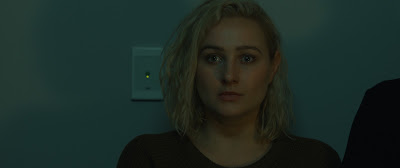This post is written by our monthly correspondent, Lee Liberman
An especially illuminating archaeological find on the grounds of Sutton Hoo House, Suffolk, England in 1939 is the inspiration behind this peaceful film on Netflix, THE DIG, starring Carey Mulligan, Ralph Fiennes, Lily James, Johnny Flynn and fine others supporting, especially young Archie Barnes who is compelling as the son of Mulligan’s character. Below Fiennes is juxtaposed with museum experts and young Archie at the site of the dig, a burial boat, described as ‘Like a time machine’.The film is based on John Preston’s 2008 novel The Dig in which the rich cache of a cosmopolitan, seventh century Anglo-Saxon king is unearthed in a burial boat. (Note that the adventurers in Michael Hirst’s Vikings and Bernard Cornwell’s The Last Kingdom novels and tv series overlap with the world of the notable buried on the Sutton Hoo estate.)
This, however, is a quiet, contemplative film rather than one to shout about — altogether a nerve-soother from the anxiety of our times. The story here is about competition among bureaucrats to take charge of the dig and its yield, a little romance, the sadness of impending death, and the rattlings of impending war. However the find itself was exceptional, real, and now long at home in the British Museum (below).
The film’s quietness is fostered by the mood set by director Simon Stone and the lovely Suffolk countryside. Mulligan and Fiennes are each iron-willed, humble, and thoughtful, as widow Edith Pretty, owner of Sutton Hoo, and Basil Brown, her hired, self-taught archeologist. Brown was scorned by museum experts as a mere excavator, while Edith was subject to their flattery, leading the two principals to operate with sympathy for each other as the laborious project advanced.
So little has survived from the Anglo-saxons that the Sutton Hoo discovery, in the end gifted by Mrs. Pretty to the British Museum, is particularly compelling. The burial chamber at the center of the ship contained lavish goods of the man lying in state, according to Martin Carver, professor emeritus at the University of York and an expert on Sutton Hoo. The occupant had personal things— a buckle woven from pure gold, shoulder clasps, his warrior sword, axe-hammer, shield, coat of mail and spears; also material for hosting a feast in the afterlife such as cooking equipment, a cauldron, a lyre, and parade gear and regalia.
According to BBC’s historyextra.com and Britannica, a king of East Anglia, Raedwald, is thought to have been buried in the oval mound, a convert to Christianity who retained his paganism. Northumbrian monk Bede, his work completed in 731, is the most certain source about Raedwald, who was born 560-80 and ruled 599 until his death in 624. ( Note 1.) He is not the only candidate for the occupant of the mound; there are others, though he is favored.
The rites of ship burial and grave goods have parallels in Sweden, suggesting a Swedish origin for this particular royal. A quantity of silverware and 41 solid gold pieces were found— (Frankish) coins to pay the boatmen for transport to eternity, date to the early 7th century. A silver dish dates from the Byzantian Anastasius (491-518), a bowl comes from Egypt. The conclusion, loudly proclaimed by the British Museum archeologist in our film, is that at least this dark age East Anglican did not live in the dark. Some were world-wide travelers and traders or had the wealth and knowledge to benefit from it. The film offers next to nothing about specific burial goods. War broke out so suddenly that scholars did not know all that they had until the cache was examined after the war. Below is an archival photo of the original dig.
To drum up appeal the screenplay gives us a relationship between Edith Pretty’s invented cousin Rory who is photographing the site (Mr. Flynn, below, l) and archeologist on site, Peggy Piggott (Ms James, below, r) whose husband (Ben Chaplin) prefers men. Note 2 offers a feminist view of this flaw. Two women actually photographed the goods (see them in the second note), and Peggy Piggott was a twice degreed archeologist, not the awkwardly insecure young woman that James is given to portray. It’s true that the Piggotts divorced 15 years later, but whether he was gay is unknown and the trumped up romance was a lazy plot device.
An agism offense is not having cast an older actress to play Edith who was fifty-six, forgivable because 35-year-old Mulligan is perfection as the ailing Mrs. Pretty, frightened by her failing health and the prospect of orphaning her son. Mulligan is no show horse — less is more is how she works, as she continues to burnish her reputation of excellence. (Below Mulligan and the real Mrs. Pretty.)
She and excavator Basil’s quiet simpatico and his with her son Robert are relationships that don't scintillate but wear well in this tranquil tale. (Edith died in 1942 at 59 of a blood clot. Robert was just 12; he died of cancer like his father in 1988 at 57, leaving 3 children.) Taken together for its discovery of ‘Britain’s Tutankhamun’, to increased knowledge of the ‘dark-age’ early centuries, to the calming pleasure of its beauty, this lovely film is a pleasure.

























































